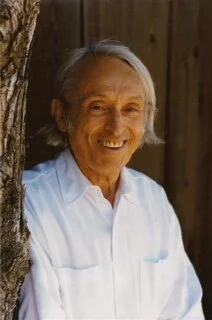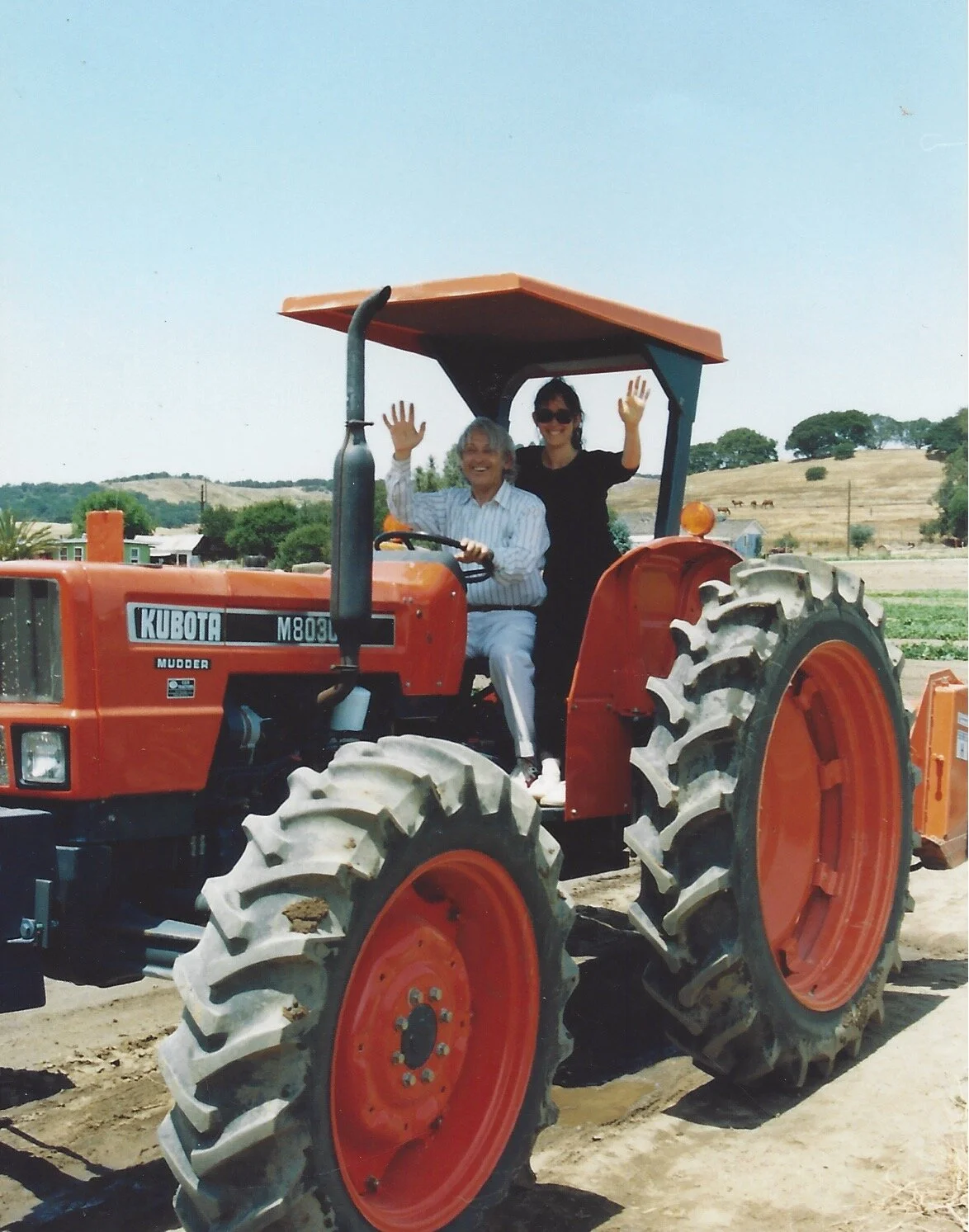Remember the Good
Lessons From My Father
Artwork by Mendek Rubin
During this pandemic, when no one can predict what the future will bring, I have been alternating between extreme emotional states—calm as a tranquil sea all morning, and then hit with a tidal wave of anxiety the very same evening. When my mind can’t find comforting answers to the heightened threat and uncertainty, my best option is to live moment-by-moment, appreciating the practice I’m getting in navigating wild, ever-changing tides. As my father, Mendek Rubin, wrote long ago, “The more I seek security, the less secure I feel.”
The lessons my father learned on his journey from being a depressed, emotionally isolated Holocaust survivor to becoming the most joyful, peaceful person I have ever known have been helping me during this very challenging time, especially his unwavering determination to always focus on the good.
Remembering the good is a very powerful practice that can quickly change our lives for the better. Even when we aren’t going through a time of particular hardship, research shows that humans are wired to give more importance to negative experiences than positive ones. The term for this well-known phenomenon is the “negativity bias.”
In general, negative events have a greater impact on our brains than positive ones. Most people recall insults more frequently than praise, and dwell on negative events or interactions more than positive ones. Many psychologists view negativity bias as an evolutionary survival mechanism—it was more important to remember where a predator was hiding than to recall a pretty cloud formation.
In my father’s quest to put an end to his emotional suffering, he observed that he’d spent his life feeling sorry for himself rather than making an effort to remember the good. “Dwelling on the negative had become an addiction, one as difficult to overcome as a drug user’s habit.”
Not only did my father decide to focus on all that brought him delight in present time, he also understood that even though he was terrified to remember his boyhood in Jaworzno, Poland, it was important for him to face his past and go back in time to search for experiences of love and joy that he’d had as a child.
Mendek’s family in Poland. Front row, left to right: Mendek, sister Bronia, cousin Liba, sister Rutka, brother Tuleg. Back Row, left to right: mother Ida, sister Mila, father Israel.
Accessing his long suppressed memories was extremely painful at first, but soon my father was surprised and pleased to discover that his memories were not all bleak—that he’d completely forgotten many good experiences, which was like uncovering buried treasure. “I regularly brought myself back in time to the places I’d enjoyed in Jaworzno. I conjured up the people I’d loved, the taste of my favorite foods, and the activities that had once delighted me… Each time I recalled something pleasant, I’d welcome and cherish those newfound gems. I thought of them over and over, feeding my mind and heart until they became indelibly impressed into my consciousness... These flashbacks quickly became a source of pleasure, security, and inspiration.”
As I experiment with my father’s practice in my own life, I understand why searching for, and focusing on, everything delightful worked so well for him. When I go to bed thinking about the seemingly insurmountable problems presented in the news that evening, I am awash in worry and become emotionally depleted. But if, instead, I review my day with the intention of recalling the many things that brought me love, comfort or joy—a call from my grandkids, a sweet gesture from my husband, the tiny fruit beginning to show on our apple trees—I am filled with images and emotions that nourish me and keep me feeling healthy, vibrant, and optimistic.
My father—wise pragmatist that he was—always said, “A good memory is one that remembers the good.” He observed that fear feeds on fear and happiness feeds on happiness, so focusing on the positive yields exponential results. Additionally, he often spoke about how contagious thoughts are, and the huge impact of spreading happy and kind thought forms, versus ones of fear and despair.
We’re in for a long marathon with the coronavirus, and thinking good thoughts has become part of how I take care of myself mentally and emotionally—which is just as important as taking care of my physical body. In truth, they are inseparable.
“Quest for Eternal Sunshine—A Holocaust Survivor’s Journey from Darkness to Light” is the story of Mendek Rubin, a brilliant inventor who endured three horrendous years in Nazi slave labor concentration camps while most of his family was murdered in Auschwitz. Mendek eventually turned his genius on his own psyche, figuring out innovative ways to heal from his enormous traumas to live a joyous and peaceful life. The book—a posthumous collaboration between Mendek and his daughter, Myra Goodman—is based on an unfinished manuscript Myra discovered after her father’s death.
Mendek was an extremely curious, imaginative, and inventive person from the time he was a young boy. At only seven, he devised a key that could open any lock. His family owned a hardware store in their small town of Jaworzno, Poland, and if someone accidentally locked themselves out of their home, Mendek was the one sent to open the door.
Just like the universal key he’d invented as a child, Mendek discovered the keys to freeing himself from the psychological prison he’d been trapped in for decades to find his way back to love. In this “Keys to Happiness” series, Myra shares some of the important lessons she is continuing to learn from her father every day.











